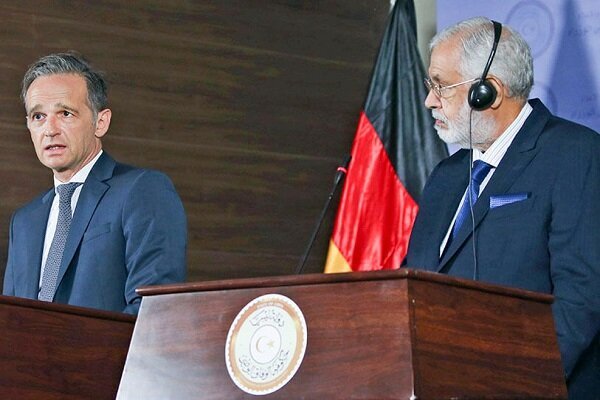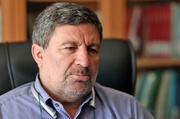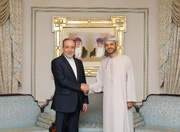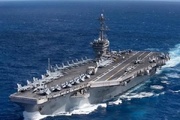They also called for talks to demilitarize Sirte, an announcement that was welcomed by the United Nations Libyan envoy, Stephanie Williams, calling the development a sign of “courage,” adding that it will lead to the ultimate departure of foreign forces and mercenaries.
The UN-backed the Government of National Accord (GNA) in Tripoli, led by Prime Minister Fayez al-Sarraj, and Speaker of Libyan east-based rival parliament Aguila Saleh, simultaneously proclaimed the ceasefire in coordinated announcements.
Al-Sarraj’s statement called for parliamentary and presidential elections next March based on “an adequate constitutional platform agreed upon among Libyans.” Saleh proposed making Sirte the seat of a “new presidential council, which should bring all Libyans together.”
Libya’s Tripoli-based National Oil Company (NOC) has welcomed the announcement expressing hope that it might reopen oil fields idle since mid-January when renegade general Khalifa Haftar who heads Libyan National Army (LNA) imposed an oil blockade in an effort to apply pressure to Tripoli.
Distribution of oil revenue has been a key source of tension between the two sides. GNA insists that if oil fields open after seven months and crude exports restart, the revenue should be held in a special account and only be released after a political deal is reached. NOC, which remains neutral from political factions’ rivalry, said it has backed this proposal but insists the military forces should be withdrawn from oil facilities before any resumption of exports.
Al-Sarraj “issued instructions to all military forces for an immediate ceasefire on all combat operations in all Libyan territories,” a statement quoted by China Daily reported.
According to the report al-Sarraj and Saleh, both cited the coronavirus spread as a reason for backing a ceasefire.
However, previous efforts to secure lasting ceasefires have failed, and Libyan leaders hold limited sway over armed groups in the two broad factions that have largely split between the west and the east of Libya since 2014.
Haftar’s forces occupy most of the eastern part of Libya. He is based in Benghazi. There was no immediate reaction from Haftar or his backers, including authoritarian regimes of UAE, Egypt, and Saudi Arabia. Haftar has also received assistance from Jordan and France. Although Kremlin-linked Wagner Group supports the 76-year-old Libyan born Haftar, Putin has declared the mercenaries do not represent Russia.
Haftar’s LNA suffered a blow in June when GNA forces – with air and logistics support from Turkey – pushed it back and gained the upper hand in the fighting. Armed with sophisticated domestically-made Turkish surveillance and combat drones, Tripoli forces retook the capital’s airport, all main entrances, and exit points in the city, vowing to retake Sirte, which was captured by Haftar earlier this year.
After the June losses, Haftar retreated and announced a ceasefire in Cairo in the presence of President Abdul Fattah el-Sisi, declaring he was ready to stop fighting and enter talks.
In reactions to Haftar’s retreat, on July 20 Egypt’s parliament unanimously approved the deployment of troops in Libya. Sisi, in televised remarks, warned that the fall of Sirte or Al-Jufra airbase would be a “red line” for Egypt. The GNA denounced Egypt’s military threat, calling it a “declaration of war.”
In a tit-for-tat move, on July 22 Turkey’s National Security Council (MGK), convened by President Recep Tayyip Erdogan, reaffirmed the country’s support for GNA. Turkey has helped to repel a 15-month assault on Tripoli by Haftar’s LNA.
These developments in June and July put Turkey head to head with Egypt. However, the ceasefire initiative is backed by both countries who have been bitter rivals in the conflict.
Pre-ceasefire talks
Russian and Turkish delegations met July 22 and released a statement agreeing to press ahead with efforts to create “conditions for a lasting and sustainable ceasefire” and agreed to work towards a political dialogue.
The two sides mulled creating a joint working group on Libya and were scheduled to hold more consultation in Moscow “in the near future,” according to the statement. There were unconfirmed reports that such a group was eventually formed.
Chinese Foreign Minister Wang Yi had a telephone conversation on July 23 with his Egyptian counterpart Samaneh Shakoury, in which the Egyptian side proposed implementation of the Cairo Declaration, calling for an immediate ceasefire and political dialogue.
The GNA and Turkey had rejected Egypt’s June 6 Cairo Declaration insisting peace is only possible when Sirte and Al-Jufra airbase are in GNA hands.
For his part, Wang said solving the Libyan issue requires a Libyan-led and Libyan-owned solution, requiring both sides of the conflict to observe an immediate ceasefire, requiring all parties’ support the UN as the main channel for mediation.
More recently, on August 17, Turkish Defense Minister Hulusi Akar and his Qatari counterpart Khalid bin Mohammad Al Attiyah paid a visit to Tripoli, Xinhua news agency quoted Turkish defense ministry.
“For the unity, integrity, comfort, and peace in Libya, we have made every effort to make a ceasefire permanent,” Akar was quoted.
German Foreign Minister Heiko Maas visited Libya last Monday (August 17) on an unannounced visit to help solve the country’s civil conflict, reports DW. This was his first visit since an international conference in Berlin last January that failed to bring the two warring factions together.
“We see a deceptive calm in Libya at the moment,” he said in a statement on his arrival. “Both sides and their international allies are continuing to arm the country on a massive scale and are maintaining conditions for a ceasefire,” Mass warned.
Whether the ceasefire is a result of the novel coronavirus infection or simply a matter of all the factions’ dialogue, it is the first step forward in the past nine years and a sign of hope for the north African nation to return to normalcy. It should be encouraged by all parties, internal and external, and given a serious and sincere trial.
First published in Tehran Times daily


























Your Comment